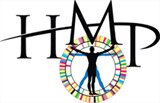 Here at Genomes Unzipped we love genomes. But there is more to the world of biology than genomics, there is more to understanding your own body than personal genetic tests. To understand the human body, you have to look not just at the DNA present, but also at what genes are turned on in what tissues, what cells are being produced in what numbers, what compounds are circulating in your blood, and even what other organisms are also living on your body. However, for the interested consumer the non-genetic aspects of personalized medicine have generally been less readily accessible than the genetic aspect. This post discusses a few companies that are trying to fill this gap, and who are looking to the general public to crowd-source funding for their products.
Here at Genomes Unzipped we love genomes. But there is more to the world of biology than genomics, there is more to understanding your own body than personal genetic tests. To understand the human body, you have to look not just at the DNA present, but also at what genes are turned on in what tissues, what cells are being produced in what numbers, what compounds are circulating in your blood, and even what other organisms are also living on your body. However, for the interested consumer the non-genetic aspects of personalized medicine have generally been less readily accessible than the genetic aspect. This post discusses a few companies that are trying to fill this gap, and who are looking to the general public to crowd-source funding for their products.
A quick note: I have not investigated these companies in detail, and, as with all crowd-sourcing, you should be aware that the company may not manage to produce the product as they describe it (or even get to make it at all).
Sequencing your own gut microbiome
In June of last year a flurry of papers came out reporting the results of the Human Microbiome Project. These papers provided a framework for understanding the species of bacteria and other organisms that live in and around our body, and in particular the community of species that occupy the healthy human gut. These results paved the way for further research into the relationship between human microbiomes and human health. However, they also opened up the possibility for people to look at and understand their own personal microbiomes,
Two projects are currently seeking funding to start characterising human microbiomes commercially: uBiome (or μBiome, depending on your mastery of keyboard shortcuts) and the American Gut Project. Both companies offer a very similar product: you send off a sample of your stool, and they sequence a small amount of genetic material from each bacterium (enough to give the broad strokes of the microbiome). Both are also situating themselves heavily in the “Citizen Science” camp, hoping to go for a crowd-sourced version of the 23andMe-style research model by collecting survey data as well as sequencing data from their patients. The hope is that they can map new associations between gut bacteria and human traits, and both have made noises about getting their own customers involved in the analysis as well.
The biggest difference between the two is uBiome is an international project and ships worldwide, while the AGP allows dogs but not non-Americans. As you could probably guess, I am supporting the company who considers my fine British feces as more valuable than dog poo, but each to their own.
Measuring biomarker concentrations from blood spots
A large amount of information about the state of your body can be gleamed from the concentration of various natural substances in your blood. Cholesterol concentrations can measure your metabolic health, vitamin concentrations can tell you if you are deficient in any areas of your diet and cortisol concentration can measure stress. In the short term, blood biomarkers can tell you far more about your health, fitness and disease risks than your genome ever could.
The value of (and potential market for) consumer blood biomarker tests has not been missed by companies. For instance, last year InsideTracker started offering measurement of 20 biomarkers along with a detailed interface to interpret the information. However, as well as being only available in the US, the service costs at least $99 a pop and requires blood to be taken by a phlebotomist, so is hardly something you can afford to do regularly. And “regularly” is important here, as unlike your genome, the concentration of proteins in your blood vary, and often it is their pattern of increase or decrease that you will be most interested in.
A company called Talking20, currently seeking funding via Indiegogo, has a solution to these limitations. They intend to measure the concentration of proteins in the blood using mass spectrometry, and to do so via spots of blood from a pricked finger pressed onto filter paper. The prices are low, with one package measuring 5 compounds three times each for $59, and the blood spots can be made at home with a (sterilised!) lance and sent off for testing in the post. You can imagine easily sending off a set of spots every month for a few hundred dollars a year,
As a nice demonstration, the Talking20 blog has a 10 time-point curve of what happened to an employee’s cholesterol in the 8 hours after eating a large burger meal. Apparently they have other data that they are currently holding back from when another employee ate 4 burgers. I guess they just really like burgers?
The imagine at the top of the post is the logo of the Human Microbiome Project, taken from Wikipedia








 RSS
RSS Twitter
Twitter
Great post! Wanted to also add that Genohub (not necessarily designed for non-scientists or crowd sourcing per se), makes ordering and tracking NGS services really easy. Should significantly help with these sort of a projects.